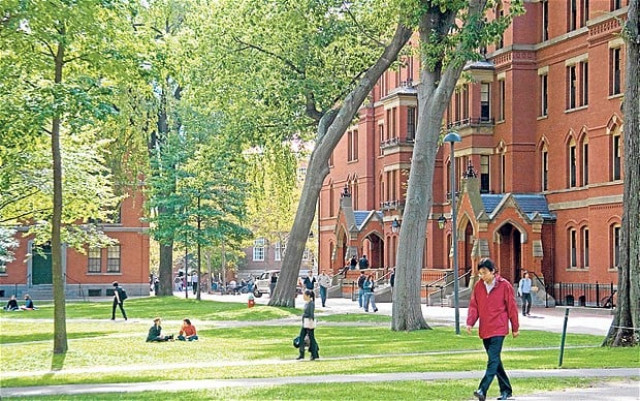Applying to Harvard Law School just became much simpler
Decision can make admission process easier and less expensive for candidates

PHOTO: ALAMY
After almost 70 years of the reign of the Law School Admission Test (LSAT) in Harvard, the top most law varsity is set to expand its admission criteria by accepting applicants who have had no prior experience studying law.
The decision can make the admission process easier and less expensive for candidates applying for graduate school, Harvard officials said.
QAU ranked among top 100 universities in Asia
The varsity’s decision was followed by an announcement made by the American Bar Association about changing its standards to allow examinations apart from the LSAT.
In 2016, it was University of Arizona College of Law that let students apply with their GRE results if they had not taken the LSAT. Two other schools also followed suit but for Harvard this was perhaps a difficult decision to come by.
“Will other schools follow? Probably,” said Kyle McEntee, executive director of Law School Transparency. According to him, many other law schools are also considering changing their criteria “because schools across the board have been struggling with applications — not only applications, but the quality of applicants.”
Harvard, Yale and Stanford universities to sue Trump's immigration ban
Harvard witnessed a five-per-cent increase in the applications last year and this year as well, said Jessica Soban, associate dean for admissions and strategic initiatives.
“Regardless of the number of applicants we have, this initiative is about making sure the most qualified candidates continue to consider us,” she said.
“We have been out pretty publicly with a message that some of the most cutting-edge legal issues rely on an understanding of science and technology, and engineering problems. These are the questions that require not only great legal training, but the technical underpinnings really do help to understand the issues.”
The current percentage of international students in the first-year class at Harvard stands at 17, said Soban, which means that expanding the application process through GRE was a significant factor.
The article originally appeared on The Washington Post



















COMMENTS
Comments are moderated and generally will be posted if they are on-topic and not abusive.
For more information, please see our Comments FAQ